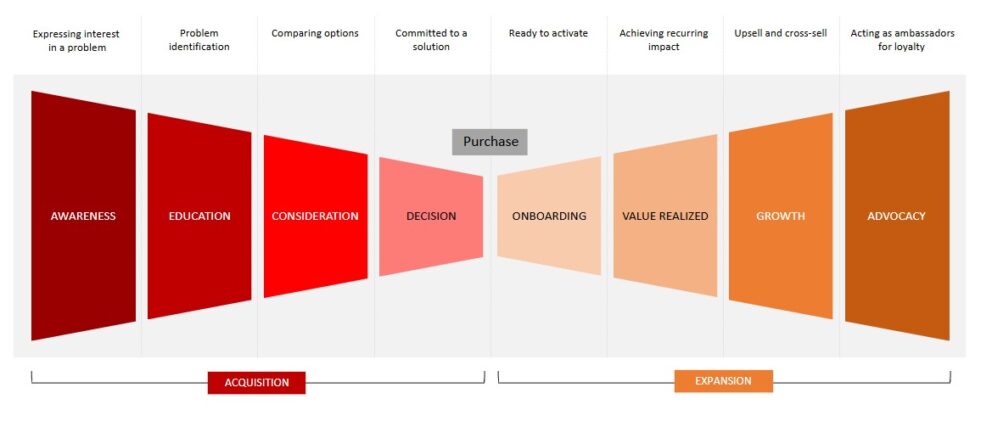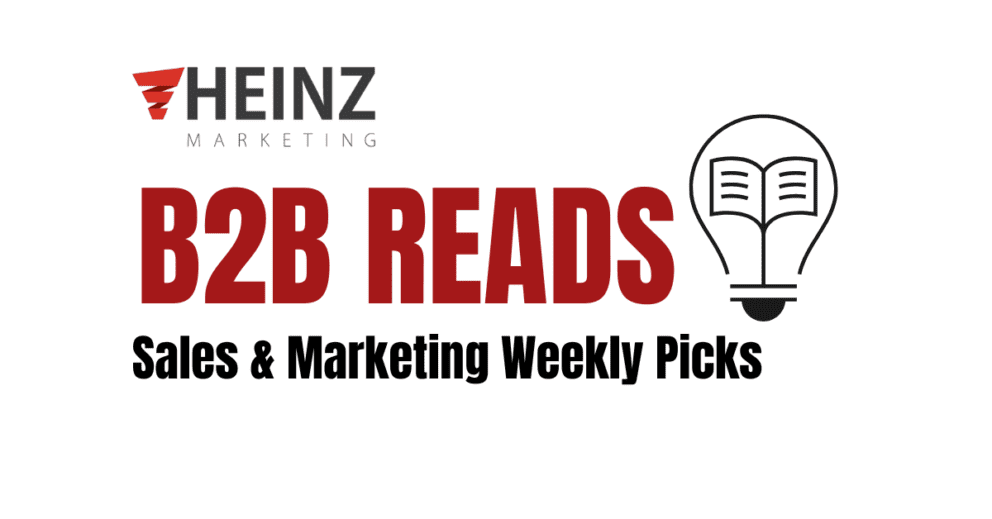AI Powered B2B Marketing

Summary
The blog discusses the digital transformation in B2B Marketing with the integration of AI. Marketers are now more comfortable using AI in their strategies, thanks to user-friendly marketing technology companies. AI enables content generation, content curation, chatbots, and predictive analytics with ABM, helping B2B marketers reduce friction and create personalized brand interactions for better customer experiences.
By Payal Parikh, Director of Client Engagement at Heinz Marketing
We have all witnessed a digital transformation in B2B Marketing with the onset of Artificial Intelligence (AI). Marketers are becoming more comfortable utilizing AI in their digital marketing strategies than they were a few years ago. Thanks to the marketing technology companies that have made the concept more approachable and actionable. Even if you are not actively or knowingly utilizing AI technology, chances are you might still be using it through the tech stack that you currently own.
If you would like to start using AI in your strategy, to get better predictions about your prospect’s actions, you’ve landed at the right spot. My goal is to make you familiar with the concept of AI and increase your comfort level in understanding the use cases.
What is AI and how does it help in B2B Marketing?
Artificial Intelligence (AI) is making our world smarter by automating tasks and improving efficiencies. AI makes machines learn from experience and adjust to new inputs to perform human-like tasks.
AI makes predictions of future outcomes based on historical data. The most common consumer example of AI in your day-to-day life is Google Maps. There are other apps on your phone that are also using this technology like Facebook, Instagram, Amazon, Spotify, Netflix, and more. Everyone is using your data to try and predict your behavior or your next steps or even what you are going to purchase. Google Maps makes ‘predictions’ of ways you can go from point A to point B. But the human makes a decision on which route to take.
Challenges faced by B2B marketers is providing a well-rounded experience to our customers and prospects. Customer expectations have changed based on their experiences with B2C brands like Netflix and Spotify. Our audience expects simplicity and personalization. Our audience is used to the predictive capability that when they are dealing with technology that is not intelligent, we see friction in the buyer’s journey. By building more intelligent solutions, B2B marketers can minimize that friction in the buying cycle. It is still ultimately the human to make a choice but the experience becomes much better.
Here are some ways AI helps B2B marketers to reduce that friction and create personalized brand interactions.
Content
AI has the potential to help marketers map out end-to-end content strategies.
Content generation
Intelligent tools like Quill and others are already being used by AP, Washington Post, and Forbes to create news that generates more engagement on their website.
AI content generation tools in B2B have many advantages. It saves time, eliminates human error, and creates more relevant content. B2B marketers can utilize AI-driven content not just for websites and blogs, but can also leverage the technology for sales outreach emails, social posts, ads, and much more.
Content curation
Netflix is a perfect example. Netflix’s recommendation system can give you suggestions for movies and TV shows you might find interesting. And it’s pretty accurate!
How can you leverage this in B2B marketing? Content platforms like Pathfactory build AI-driven content journeys based on real content consumption data. It recommends content pieces based on what the customer reads on the website.
Chatbots
A chatbot works on the basis of AI. You might have used a chatbot while on a website looking for quick answers to your questions. Chatbots aren’t marketing for your business. They are there to provide 24/7 service which helps both your brand and the website visitor. It gathers data on the visitors which helps you target your messaging and delivers those targeted messages on your behalf. Chatbots can help move customers through the sales funnel by interacting intelligently and asking specific questions. This helps customers find quickly what they are looking for.
Smart chatbots lead to higher efficiency in sales and customer service and help lower your costs.
There is a right way and a wrong way to use a chatbot on your website. Make sure to educate yourself on that before starting to use this technology.
Digital Advertising
Advertisers are already using AI to identify and segment audiences, build ad creative, test ads, improve ad performance, and optimize spending—all automatically, in real-time, at scale.
AI is an absolute must if you want to win in the new landscape of modern programmatic advertising. AI can do all of this and more. Source linked here if you are interested in learning more:
- Allocate advertising budgets, both across channels and audiences
- Adjust advertising budgets automatically to hit KPIs
- Find new advertising audiences and conversion opportunities
- Build richer audience profiles
- Determine and hit campaign goals
- Gain insight into competitors’ ad spend, creatives, and strategies
- Create ad copy
- Create visual ad creative
- Hyper-personalize ad messages and images to individual consumers
- Hyper-personalize ad targeting
- Predict ad performance before launching campaigns
- And much more
Predictive Analytics with ABM
There are some good ABM platforms in the market that use AI technology to generate time-based predictions to show where customers are in their buying journey and when it is time to engage with them.
These platforms use historical intent signals to reconstruct the account-based buyer journey for your business, so you can confidently predict where any account is in their buying journey. They build their models using AI technology and the model keeps learning and modifying over time.
By utilizing the intent, insights, and AI-driven predictive capabilities of these platforms, you can create personalized and relevant experiences at every stage of the buyer’s journey. And it is not just limited to acquiring new customers. You can utilize it for cross-sell, upsell, renewals, and can also predict if a customer is going to churn.
To learn more about specific use cases of AI on B2B marketing and challenges faced by B2B marketers, read this blog written by my colleague Cameron Katoozi.
Let me know if you need help to determine how you can start leveraging AI by adding in your comments or you can also send me an email. I would love to hear from you!





